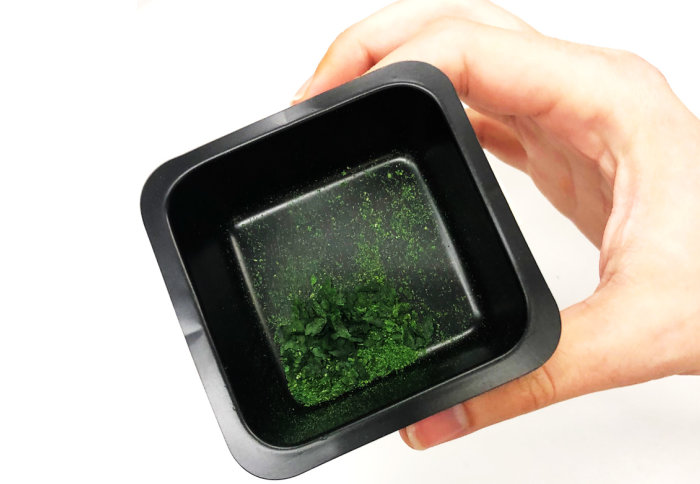Organic “biofertilisers” could transform future food production

An Imperial team has won two EU innovation competitions for pioneering eco-friendly fertilisers made from algae.
Bio-F Solutions, a startup run by staff and students from the Department of Life Sciences at Imperial, aims to improve the sustainability of food production while minimising the impact of agriculture on the environment.

They are developing sustainable and organic alternatives to synthetic fertilisers using micro-organisms such as algae, which can replenish essential nutrients in the soil and promote health crop growth.
The team includes PhD students Marine Valton and Laura de Arroyo Garcia as well as Imperial staff members Dr Patrik Jones, Emanga Alobwede and Dr Giorgio Perin, and Viktoriia Nikonova from Cranfield University.
Co-founder Marine Valton said: “The need for sustainable food production is one of the world’s biggest global challenges. We urgently need to find ways to ensure our growing population is fed, without compromising our environment. We are committed to improving the health of soils around the world, empowering farmers and ensuring that our future generations can live healthy lives.”
Nitrogen fixers
Nitrogen is an essential nutrient for plants, but plants are unable to get nitrogen directly from the air. Instead, they rely upon nitrogen compounds – such as nitrates – which they take up from the soil.
 Agriculture can cause soil to become depleted of these nutrients, leading to poor crop yield. For this reason, farmers often use synthetic fertilisers to maintain their soil’s fertility and boost crop growth.
Agriculture can cause soil to become depleted of these nutrients, leading to poor crop yield. For this reason, farmers often use synthetic fertilisers to maintain their soil’s fertility and boost crop growth.
However, these synthetic fertilisers can be harmful to the environment. They can leach out into streams, rivers and lakes, and cause an overgrowth of aquatic plant life. This ultimately results in a loss of oxygen in the water, harming fish and other wildlife.
Bio-F Solutions are harnessing the power of ‘nitrogen-fixing bacteria’ – such as blue-green algae – that can remove naturally occurring nitrogen in the atmosphere and ‘fix’ it in the soil for future plants to use.

The team says that these micro-organisms could be grown in wastewater, directly contributing to wastewater cleaning.
Marine Valton continued: “Current organic solutions – such as crop rotation, compost, or manure - are expensive, inefficient or impractical for many farmers. Our unique and sustainable process can produce a fertiliser that is more efficient than equivalent products on the markets. It is cost-effective, and can be seamlessly integrated into existing fertilization systems.”
European innovation
 Bio-F Solutions won both the EIT Food Global Venture Programme and the EIT Food Entrepreneurship Prize, securing a total of €35,000 funding to progress their business. They also secured the People's Choice Award, selected by the audience.
Bio-F Solutions won both the EIT Food Global Venture Programme and the EIT Food Entrepreneurship Prize, securing a total of €35,000 funding to progress their business. They also secured the People's Choice Award, selected by the audience.
EIT Food is a European Knowledge and Innovation Community (KIC) which supports innovative and economically sustainable initiatives which improve health, access to quality food, and the environment.
The team plan to use the funding to kickstart the commercial scale-up of their business and fund field trials in 2019.
Imperial support
Bio-F Solutions have been supported by Imperial Enterprise Lab, and also participated on the Climate Launchpad and Greenhouse programmes, run through EIT Climate-KIC, based at the Grantham Institute – Climate Change and The Environment. They are currently participating on Imperial’s WE Innovate programme for women entrepreneurs.
Article text (excluding photos or graphics) © Imperial College London.
Photos and graphics subject to third party copyright used with permission or © Imperial College London.
Reporter
Deborah Evanson
Communications Division